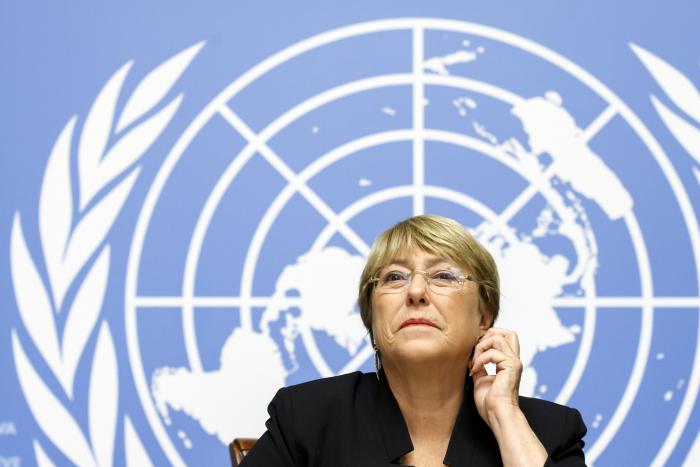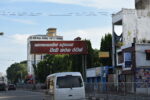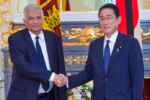Facebook: the trending norm of local politics

Facebook having a say in Sri Lankan political culture
Social media, Facebook in particular, has become a hotbed of local politics of late. There are a staggering number of 6, 479,000 facebook users in Sri Lanka which makes up for 30.4 % of the total population. Out of all local facebook users, 66.9 % are men and interestingly, the largest age group of facebook users are found to be from the 25-35 age category. These figures are constantly on the rise day by day. Similarly, ‘Twitter’ and ‘Instagram’ are widely used to project individual opinions and expression of ideas and thoughts on varied subjects in text and picture forms. But, local politics has already become the hotly debated topic on all these social media platforms, pushing all other elements to the wilderness of the backyard. Even, Sri Lankan diaspora has become a vital part of this trending norm being involved in local politics indirectly from elsewhere. Those who are domiciled overseas, seem to be closely watching the Sri Lankan political climate rather than the locals resident in the motherland itself.
War of politics on cyberspace
Two such individuals are engaged in an eternal debate on facebook with one vehemently supporting the Rajapakse regime while the other uploading posts defamatory of the clan. This hot debate between two ex- Sri Lanka Air Force officers on facebook has become a cynosure of many followers. Whenever, the individual who is against Rajapkases, uploads a post, cartoon or video on facebook, other counters with a ready phrase in Sinhala meaning ‘those who left the country in disgust now prophecies on the country’s future’ with an amusing image. Others go on unabated uploading posts every now and then to the utter dismay of the other party. Both parties are supported by a multitude of supporters both from Sri Lanka and overseas, chipping in with remarks on and off. But, Irony is that both parties are happily domiciled in the greener pastures of Canada. However, this debate goes on eternally but in a friendly environment. They compliment each other often on their respective achievements, anniversaries, birthdays and seasonal greetings too. But, this is not the case with everyone on facebook.
Exchange of bitter hostilities
There are so many facebook users who had to change their profile names to emerge as a new user. The reason being, they have been reported by certain interested parties so that their accounts have been suspended by the facebook authorities for certain periods. All these users indulge in propagating the opposition parties or are highly critical of the regime. Besides, some facebook accounts are suspended intermittently on the same issue of being reported for using hatred language on local politicians and political parties on their posts. In some political debates, the facebook users trade abusive and outrageous language beyond all social ethics and acceptance. In some cases, even raw filthy language was used with no regard to the fact that facebook posts are viewed by thousands across the world. There is a particular lady lawyer turned community worker from a Colombo suburb whose politically motivated posts are not simply digestible as she posts them in raw filthy language in Sinhala. Nevertheless, she has a good band of followers but no one can challenge her posts because she retorts angrily with the same vigor. So, no one dares to do that.
Government patronage on Social media
Government and opposition both seem to have taken facebook seriously in their respective propaganda campaigns. Many Government and opposition members of Parliament maintain active facebook and Twitter profiles. Meanwhile, the Government and main opposition parties have employed elements of staff to manage their respective facebook profiles continually. Not only that, the Government is suspected to target facebook users who are critical of the Government. The Government social media unit or Government aligned facebook users report such users to the facebook authorities, resulting in their facebook accounts either being suspended or forfeited in recent times. The Government seems to target Janatha Vimukthi Peramuna (JVP) supporters as it fears that JVP is an emerging political force in the country. The Government social media promoters bring back gruesome memories of 1988/89 JVP upheavals to remind people of their barbaric rule of violence. But, many people openly support JVP in the wake of two main parties and breakaway factions failing to deliver anything tangible in its 73 years of independence. A number of prominent media personalities confided in the writer that they receive instructions from Government quarters to quote certain parts of the speeches of up and coming opposition leaders to discredit them in the public eye. In this sense, Opposition Leader Sajith Premadasa and JVP Leader Anura Kuamara Dissanayake are systematically victimized. The reason is obvious that these two leaders pose a definite threat to the Government’s very existence. The Government employs tactics to counter their emergence and ensure Government’s stability at an hour of crisis.
Sri Lanka’s Facebook portfolio
Sri Lanka’s facebook portfolio is getting bigger and bigger each day. It is not only popular with the young crowd but people from all walks of life. People tend to believe that facebook is a reliable and credible source of information. Even top professionals, businessmen, academics and even students are a vibrant part and parcel of these social media groups. Facebook is a platform where everybody can opine their views. Therefore, this not only tends to extend their exposure but their political maturity. This norm seems to be working in society today. Social media users are well informed and rather smart in this knowledge culture. The Government and the opposition attempt to capitalize on this trend. In time to come, social media users will definitely be a force to reckon with. It is a cross section of society that can make a change. Mostly, the emerging voter base is a vibrant part of this trend and therefore, no politician or political party can simply ignore its impact. That may be the very reason why they go the extra mile to get hold of social media with so much zest. On the other hand, social media bandwidth is expected to grow tremendously in the future. So, those who are in control of social media will hold the key to power.
.






